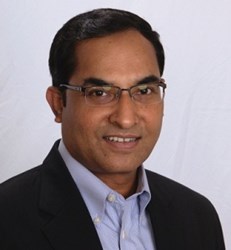Centralized Monitoring: A Smarter, Cost-Efficient Approach To Clinical Quality

By Ashok Ghone, Ph.D. is Vice-President, Global Services at MakroCare USA
The life sciences industry is faced with the daunting challenge of developing and introducing new drugs and therapies in a quicker and more cost-effective manner. The clinical phase is the most complex part of the drug development process, and it requires efficient planning, conducting, and monitoring of clinical trials to achieve the desired quality and obtain reliable study data that is appropriate for regulatory submission. Clinical monitoring cost is one of the major costs, accounting for one-third of the overall cost of clinical trial management.
As complexities in clinical trials have increased significantly in the last few years, the clinical monitoring cost and, in turn, the trial management cost have risen significantly in order to achieve higher data quality and better monitoring of patient safety. Studies have shown that traditional ways of conducting frequent monitoring visits every four to eight weeks to investigational sites and 100 percent source data verification (SDV) do not necessarily result in higher data quality. Therefore, there is a need to develop a smarter and complementary approach to achieve effective study data monitoring. Considering the innovative monitoring approaches available today, centralized monitoring appears to be the most suitable approach to improve data quality and patient safety in a cost‐efficient manner. Even FDA and other regulatory bodies encourage greater use of centralized monitoring practices, wherever appropriate.
The key benefits of centralized monitoring:
- Helps in early identification and mitigation of data quality risk/issue(s) which may compromise validity of study results
- Supports in better monitoring of patient safety and helps in enhancing subject protection
- Increases effectiveness of CRAs and helps utilization of their time very efficiently and objectively during on-site monitoring
- Keeps track of sites’ performances to help plan on-site monitoring visits
- Optimizes on-site monitoring visits, thereby reducing related costs
- Creates overall efficiencies in clinical trial operations
In order to launch successful centralized monitoring practices, there must be effective process restructuring and cross-functional resources alignment, and the proper technology needs to be in place.
Restructuring the monitoring process:
Designing a realistic, efficient, complementary centralized monitoring plan with pre-defined key risk indicators (KRIs) and their thresholds, along with suggested action plans for the critical risk/issue(s), is key to adopting a centralized monitoring approach. The key risk areas, their measurements/metrics, and thresholds which need to be tracked during centralized monitoring should be identified upfront and monitored throughout the process. The plan needs to clearly explain what should be achieved through centralized monitoring and how the centralized monitoring findings would be used for planning of site contacts or on-site monitoring visits based on the criticality of the issues identified. One of the key objectives of centralized monitoring is to increase the effectiveness of on-site monitoring to augment CRAs’ performance. The process will also define communication plans between the centralized monitoring team and different stake-holders to relay the risk/issue(s) identified for timely corrective actions.
Cross-functional resources alignment:
Training employees and aligning the right resources with the proper roles and responsibilities are all essential tasks in order to effectively implement the centralized monitoring process. The team should comprise central monitors, medical reviewers, data processing personnel, biostatisticians, and a technology support group in order to accomplish the required results. The central monitors will spend a considerable amount of time monitoring the data remotely, reviewing the reports, identifying the risk/issue(s), and relaying those issues for corrective actions. The central monitors must possess high-level knowledge of clinical trial management and data management activities. They should also have strong analytical and critical thinking skills to identify trends and outliers and to hone in on the risk/issue(s) related to data quality or patient safety.
Technology:
Centralized monitoring is feasible only if the right technology is in place, ensuring the study data will be in the right format and can be monitored remotely in a timely manner. The integration of clinical and operational data from disparate sources — for example, EDC, CTMS, IRT, or e-diary etc. — are necessary for effective centralized monitoring. The key is to select the right combination of technologies that can handle the required data volumes. There is a need to have the right collaborative, analytical, and visualization tool to make the centralized monitoring process more innovative, efficient, and reliable. The right analytical tool is important to identify operational risks related to patient recruitment rate, patient screening failure, or drop-out rate, as well as to identify non-performing sites. The technology should be robust enough to apply a statistical approach to data in order to figure out data quality issues, data trending, data outliers, or the number of protocol deviations, violations, and AE/SAE rates, etc.
The regular monitoring of the metrics related to quality, timelines, and budget using a centralized monitoring approach will help realize the benefits and potential of centralized monitoring and will give the industry further insight into developing processes, resources, and technology to ensure better outcomes.
About:
Ashok Ghone, Ph.D. is Vice-President, Global Services at MakroCare USA. He has around 20 years of experience in the pharmaceutical and clinical research industry. Ashok has good knowledge and understanding of global clinical research with hands-on experience in clinical operations, project management, clinical trial management, process development, site management and patient recruitment activities. He has led various cross-functional teams successfully by providing strategic direction and guidance for accomplishment of local, regional and global projects involving early and late phase clinical studies in various therapeutic areas. Ashok has been involved in development of process, system and training related to risk-based monitoring and centralized monitoring at MakroCare, which offers these specialized services to biopharmaceutical and medical device companies to support their endeavors in implementation of the RBM approach.
Email: ashok.ghone@makrocare.com
